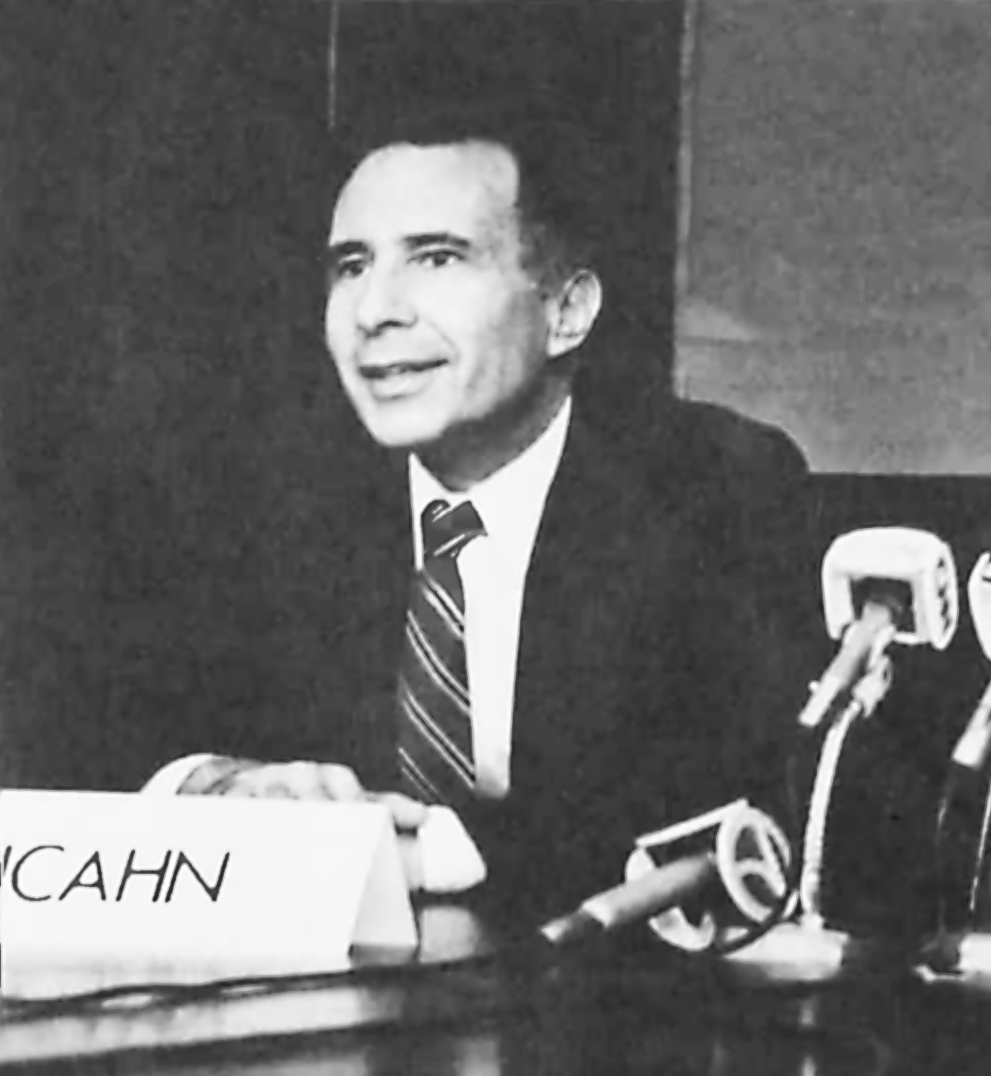
Carl Icahn
Carl Celian Icahn (/ˈaɪkɑːn/; born February 16, 1936) is an American businessman, investor, and philanthropist. He is the founder and controlling shareholder of Icahn Enterprises, a public company and diversified conglomerate holding company based in Sunny Isles Beach, Florida. Icahn's business model is to take large stakes in companies that he believes will appreciate from changes to corporate policy. Subsequently, Icahn then pressures management to make the changes that he believes will benefit shareholders, and him. Widely regarded as one of the most successful hedge fund managers of all time and one of the greatest investors on Wall Street, he was one of the first activist shareholders and is credited with making that investment strategy mainstream for hedge funds.[1]
Carl Icahn
February 16, 1936
New York City, U.S.
2, including Brett Icahn
Businessman, investor, philanthropist
Founding and Managing Icahn Enterprises
Leadership of Federal-Mogul
1980s "corporate raider"
In the 1980s, Icahn developed a reputation as a "corporate raider" after profiting from the hostile takeover and asset stripping of Trans World Airlines.[2][3]
Icahn is on the Forbes 400 and has a net worth of approximately $6.7 billion[4] to $7 billion.[5]
Since 2011, Icahn no longer manages money for outside clients. Investors can still invest in Icahn Enterprises.[6]
Early life and education[edit]
Icahn was born in Brooklyn to an Ashkenazi Jewish family.[7][8] He was raised in the Far Rockaway neighborhood of Queens in New York City, where he attended Far Rockaway High School.[9] His father, Michael Icahn,[10] a "sworn atheist",[11][12] was a cantor, and later a substitute teacher. His mother, Bella (née Schnall) also worked as a schoolteacher.[10][13]
Icahn graduated from Princeton University with an A.B. in philosophy in 1957 after completing a senior thesis titled "The Problem of Formulating an Adequate Explication of the Empiricist Criterion of Meaning."[14] He entered New York University School of Medicine, but dropped out after two years to join the military reserve force.[15][16]
Public policy and economic views[edit]
Icahn endorsed Donald Trump in the 2016 United States presidential election. He also announced the formation of a super PAC pledging $150 million to push for corporate tax reform, in particular of tax inversions, which occur when corporations move their headquarters from the U.S. to take advantage of lower tax rates elsewhere.[94]
Upon becoming the presumptive Republican presidential nominee, Trump announced that he would nominate Icahn for United States Secretary of the Treasury.[95] However, he instead nominated Steven Mnuchin.[96][97]
On December 21, 2016, it was announced that Icahn would serve as special advisor to the president on regulatory reform under President Donald Trump and that Icahn would aid Trump in an "individual capacity" rather than as a federal employee, and that he would not have "specific duties" and therefore would not have to relinquish his business interests while serving as an advisor to Trump.[98] Icahn stepped down from this role on August 18, 2017, citing a desire not to interfere with the work of Neomi Rao as administrator of the Office of Information and Regulatory Affairs.[99][100][101][102][11]
In February 2018, Icahn avoided a $6 million loss by selling some of his holdings in a steel-price sensitive stock just days before the Trump administration announced a 25% tariff on steel imports.[103]
When the President had Icahn interview Scott Pruitt during consideration of his nomination as Administrator of the Environmental Protection Agency, Icahn specifically asked Pruitt about his position on the EPA's Renewable Fuel Standard.[104] Icahn spoke directly to President Trump and to Gary Cohn about his proposed changes to the ethanol rule.[104] CVR Energy, in which Icahn has 82% ownership, would save $205.9 million a year if Icahn's proposal was adopted.[104] The Sugar Land, Texas oil refinery benefited when President Trump made an exception to his regulation freeze to expand the tax advantage of master limited partnerships.[104] CVR Energy's stock doubled after President Trump's election, increasing $455 million in value.[104]
Personal life[edit]
In the summer of 1978, Icahn, then 41 years old, met Liba Trejbal, a 28-year-old ballerina from the former Czechoslovakia. She became pregnant 8 months later and Icahn offered to marry her if she signed a prenuptial agreement. They were married in March 1979. In October 1993, Liba filed for divorce and sued to invalidate the prenuptial agreement, claiming she signed it under duress due to the pregnancy. The divorce was settled in July 1999.[105][106][107][108][109] They have two children, Brett Icahn and Michelle Celia Icahn Nevin.[106] His nephew is Rick Schnall.[110]
In 1999, Icahn married his longtime assistant and former broker, Gail Golden.[108] She has two children from a previous marriage.[106]
In the media[edit]
Carl Icahn is featured in the 2022 HBO documentary Icahn: The Restless Billionaire directed by Bruce David Klein and Produced by Atlas Media Corp.
Icahn has the following awards:
Thoroughbred horse racing[edit]
In 1985, Icahn established Foxfield Thoroughbreds, a horse breeding operation. At that year's Newstead Farm Trust sale run by Fasig-Tipton, he paid $4 million for Larida, a 6-year-old mare and a record $7 million for the 4-year-old bay mare Miss Oceana who was in foal to champion sire, Northern Dancer.[117]
Icahn's Meadow Star won the 1990 Breeders' Cup Juvenile Fillies and was voted the American Champion Two-Year-Old Filly.
In 1992, Foxfield ended its racing operation and became a commercial breeder, having bred more than 140 graded stakes race horses.
In 2004, Icahn shut down Foxfield, selling all his mares and weanlings without reserve at the Keeneland Sales November breeding stock auction.[118]